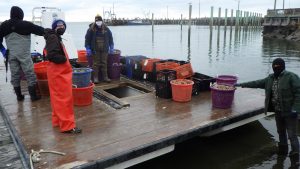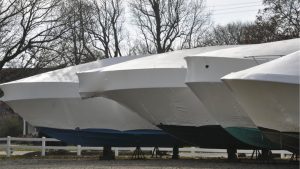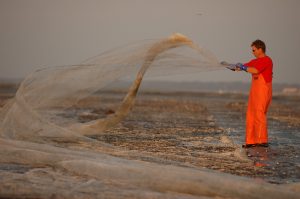Search results for: Allegiant%20Airlines%20800-299-7264%20Customer%20Service%20Toll-Free%20Number
Bivalve Mollusc Hatcheries: A Critical Appraisal of their Development and a Review of their Potential Value in Enhancing the Fisheries of Developing Nations
Bivalve Mollusc Hatcheries: A Critical Appraisal of their Development and a Review of their Potential Value in Enhancing the Fisheries of Developing Nations Mann, R. Memorias de la Asociation Latinoamerica de Acuicultura, A.L.A., Vol. 5, pp. 97-105, 1983 WHOI-R-83-023 This paper reviews the historical development of marine bivalve mollusc culture and emphasizes hatchery development. A…
Read MoreStorms, Erosion, Flooding
Storms, Erosion, Flooding Seventy-five percent of the population of Massachusetts lives in coastal counties and our coasts provide an even greater number of people a wide range of economic, social, and recreational opportunities. Competing uses of our coastline can result in conflicts between the protection of waterfront upland property and the preservation of the beneficial…
Read MoreState of Wellfleet Harbor Conference Planned
The annual State of Wellfleet Harbor Conference opens this Saturday, November 6 from 10-11:15 a.m., the first of three live Saturday webinars this month. The conference is free and all are welcome. Woods Hole Sea Grant Fisheries and Aquaculture Specialist Abigail Archer is a moderator for the conference. This Saturday, Owen Nichols with the Center…
Read MoreFalmouth Participates in Cape-wide Boat Shrink Wrap Recycling Program
This spring, the town of Falmouth will be accepting boat shrink wrap plastic at the town’s waste management facility as part of a recycling program run by WHOI Sea Grant and Barnstable County’ Cape Cod Cooperative Extension in partnership with municipalities across the Cape and Cape Cod AmeriCorps. Falmouth joins the towns of Bourne, Dennis,…
Read MoreScience at Our Shores: Woods Hole Sea Grant Research Symposium
Friday, March 6, 2020 1 p.m. – 4:30 p.m. Redfield Auditorium Woods Hole, MA Researchers explain the work they’re doing to investigate pressing environmental and coastal issues. Showcasing recently completed and newly funded Sea Grant projects on shoreline resilience, sustainable fisheries, and sharks and microplastics in our waters, among others. This event is free and…
Read MoreIdentification of Proliferating Cells in Hard Clams
Identification of Proliferating Cells in Hard Clams Hanselmann, R., R. Smolowitz, and D. Gibson Biol. Bull., Vol. 199, pp. 199-200, 2000 WHOI-R-00-005
Read More1998-2000 Projects
Molecular Biomarkers of Chemical Sensitivity Mark E. Hahn and Brenda A. Jensen, Woods Hole Oceanographic Institution A group of chemical contaminants known as PHAHs, or planar halogenated aromatic hydrocarbons, are persistent in the marine environment. Some of these contaminants accumulate in the blubber and other tissues of marine mammals. As a result, certain cetaceans and…
Read MoreWHOI-R-07-001 Valentine P.C. Ecological Ob
WHOI-R-07-001 Valentine P.C. Ecological Ob
Read MoreResuspension of Postlarval Soft-Shell Clams Mya arenaria through Disturbance by the Mud Snail Ilyanassa obsoleta
Resuspension of Postlarval Soft-Shell Clams Mya arenaria through Disturbance by the Mud Snail Ilyanassa obsoleta Dunn, R., L.S. Mullineaux, and S.W. Mills Marine Ecology Progress Series, Vol. 180, pp. 223-232, 1999 WHOI-R-99-010
Read MoreNOAA Live Webinars
NOAA Live! Webinars March 2020 – April 2022 Features • Different NOAA expert and topic with each webinar • Moderated Q&A webinars with the scientists • Geared toward Grades 2-8 • Archive of past webinars with English captions and Spanish subtitles • Why do we make an Indigenous Land Acknowledgment? • FREE NOAA Live! iron-on…
Read More


